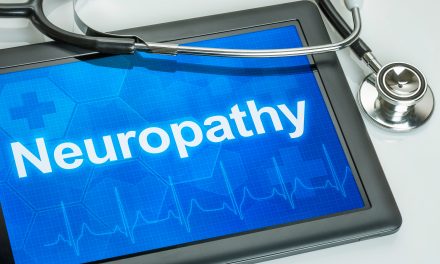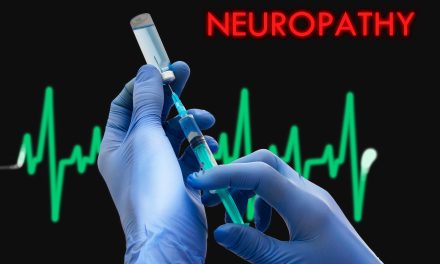Neuropathy, or nerve damage, encompasses a range of medical conditions that can result in a variety of symptoms, from pain and tingling to more severe sensory and motor impairments. Whether or not neuropathy will go away is determined by numerous factors including what caused the condition, which nerves are affected, and how soon treatment is initiated. Some types of neuropathies are indeed reversible, while others may be progressive or chronic.

The prognosis of neuropathy largely depends on its etiology. Neuropathies caused by reversible conditions such as nutritional deficiencies or certain medications can often be resolved by addressing the underlying cause. On the other hand, neuropathies resulting from chronic diseases, like diabetes, may require ongoing management to control symptoms. Diagnosis plays a crucial role in determining the appropriate treatment path and can help prevent further nerve damage.
Key Takeaways
- Neuropathy symptoms and reversibility depend on the underlying cause and nerve damage extent.
- Successful treatment often hinges on timely diagnosis and managing the underlying condition.
- Some neuropathies are reversible; others require chronic management strategies.
Understanding Neuropathy
Neuropathy refers to damage or dysfunction of one or more nerves, typically resulting in numbness, tingling, muscle weakness, and pain in the affected area. This condition can be categorized by its cause, or the types of nerves it affects.
- Causes: Diabetes is the most common cause of neuropathy. It can also result from injuries, infections, toxins, and inherited genetic disorders.
- Types of Nerves Affected:
- Sensory Neuropathy: Affects sensation, causing loss of touch or pain sensation.
- Motor Neuropathy: Leads to muscle weakness or paralysis.
- Autonomic Neuropathy: Influences internal organs and involuntary functions.
Symptoms of neuropathy depend on the type of nerves affected and the severity of the nerve damage. They typically develop gradually over time.
Diagnosis involves a physical examination, review of medical history, and tests such as nerve conduction studies or electromyography. Blood tests may be conducted to identify underlying conditions like diabetes or vitamin deficiencies.
The progression and prognosis of neuropathy greatly depend on the underlying cause. Some forms are reversible with treatment, while others may lead to chronic issues. Consistent management of the condition is critical, which may include medication, physical therapy, and lifestyle modifications.
Etiology of Neuropathy
Neuropathy can result from various underlying causes, each contributing to nerve damage in different ways. The following subsections detail specific conditions that lead to neuropathy.
Diabetic Neuropathy
Diabetic neuropathy is a common complication where persistent high blood sugar levels damage nerves. It typically affects the extremities and can result in pain, numbness, and weakness.
Postherpetic Neuralgia
This condition follows a shingles outbreak, caused by the reactivation of the varicella-zoster virus. Postherpetic neuralgia manifests as long-lasting nerve pain in the areas of a prior shingles episode.
Chemotherapy-Induced Neuropathy
Chemotherapy drugs can cause chemotherapy-induced neuropathy by harming nerves during cancer treatment. Symptoms often include tingling, pain, and numbness in the hands and feet.
Idiopathic Neuropathy
When the cause of neuropathy is unknown, it is labeled as idiopathic neuropathy. Roughly a third of neuropathies fall into this category, where extensive testing fails to identify a definitive cause.
Symptoms of Neuropathy
Neuropathy manifests through a variety of symptoms that may affect different parts of the body. The symptoms depend on the type of nerves—sensory, motor, or autonomic—that are affected.
Sensory Nerves:
Individuals may experience:
- Tingling or numbness, often starting in the feet or hands and spreading upwards
- Sharp, jabbing, throbbing, or burning pain
- Extreme sensitivity to touch
Motor Nerves:
These symptoms might appear:
- Muscle weakness or paralysis if motor nerves are affected
- Loss of balance and coordination
Autonomic Nerves:
When these nerves are affected, symptoms can include:
- Heat intolerance and altered sweating
- Bowel, bladder, or digestive issues
- Changes in blood pressure, leading to dizziness
Severity and Progression:
Symptoms can range from mild to severe, and they may progress gradually or onset quickly. The course of neuropathy is highly variable, and its symptoms can come and go or be persistent.
Here’s a simplified representation of common symptoms:
| Type of Nerve | Common Symptoms |
|---|---|
| Sensory | Tingling, numbness, pain, sensitivity to touch |
| Motor | Weakness, paralysis, balance issues |
| Autonomic | Changes in sweating, bowel or bladder issues, dizziness |
Neuropathy symptoms can significantly impact quality of life, necessitating timely diagnosis and management. It is crucial for individuals experiencing these symptoms to seek medical attention for an accurate diagnosis and appropriate treatment plan.
Diagnosis of Neuropathy
The diagnosis of neuropathy generally involves a combination of clinical evaluation and specific tests.
Clinical Evaluation:
A healthcare provider conducts a thorough medical history review and physical examination. They will focus on symptoms such as pain, tingling, numbness, and muscle weakness. The patient’s medical history can reveal factors that predispose them to neuropathy, such as diabetes or exposure to toxins.
Neurological Examination:
This examination includes assessing:
- Reflexes
- Muscle strength
- Muscle tone
- Sensation (touch, vibration, and proprioception)
- Coordination and balance
Diagnostic Tests:
- Blood Tests: To identify diabetes, vitamin deficiencies, liver or kidney dysfunction, and other metabolic disorders.
- Electromyography (EMG): Measures the electrical activity of muscle fibers.
- Nerve Conduction Studies (NCS): Evaluate the speed and strength of signals traveling in the nerves.
- Imaging Tests: Such as MRI and CT scans to detect herniated disks or other conditions that might be causing nerve pressure.
- Nerve Biopsy: Involves taking a small sample of a nerve to be examined in a laboratory, though it’s less commonly performed.
- Skin Biopsy: To check the density of nerve endings in the skin.
Some conditions that cause neuropathy may be treatable and sometimes reversible. Identifying the underlying cause through proper diagnosis is essential for effective treatment planning.
Prognosis of Neuropathy
The prognosis of neuropathy varies based on its underlying cause, type, severity, and the promptness of treatment. Some forms are temporary and may resolve on their own or with treatment, while others are chronic and can lead to long-term disability.
- Reversible Neuropathies:
- Caused by pressure or trauma: Can often be resolved with treatment.
- Induced by nutritional deficiencies: Improves with nutritional supplementation.
- Chronic Neuropathies:
- Diabetic neuropathy: Management focuses on controlling blood sugar levels to slow progression.
- Hereditary neuropathies: These are generally progressive and require supportive care.
- Treatment-Responsive Neuropathies:
- Inflammatory neuropathies: May respond well to immune therapies.
Patients should be aware that early diagnosis and treatment are crucial for a better prognosis. It is essential for individuals to work closely with their healthcare provider to manage their condition effectively.
Treatment options may include:
- Medications to relieve pain and other symptoms.
- Physical therapy to maintain muscle strength and function.
- Occupational therapy to assist with daily activities.
- Lifestyle changes, including diet and exercise modifications.
Patients with neuropathy may experience a range of outcomes from symptom improvement to disease stabilization or progression. Therefore, individual prognosis must be assessed by a healthcare professional.
Treatment Options
Effective management of neuropathy involves a combination of treatment strategies tailored to the individual’s condition and symptoms.
Medications
Prescription Medications:
- Pain Relievers: Stronger painkillers may be prescribed for more severe pain, though they carry the risk of side effects and dependence.
- Anti-Seizure Medications: Originally developed to treat epilepsy, medications such as gabapentin (Neurontin) can alleviate nerve pain.
Over-The-Counter Options:
- Nonprescription Pain Relievers: Ibuprofen (Advil, Motrin IB) or naproxen sodium (Aleve) can relieve mild symptoms.
Lifestyle Changes
Diet and Nutrition:
- A balanced diet rich in fruits, vegetables, whole grains, and lean proteins can help control blood sugar levels.
Avoiding Toxins:
- Minimizing alcohol consumption and avoiding exposure to toxins can lessen nerve damage.
Physical Therapy
Regular Exercise:
- Engages muscles and improves blood flow, potentially reducing neuropathy symptoms.
Assisted Stretching:
- Helps maintain mobility and can decrease pain or discomfort associated with neuropathy.
Surgical Interventions
Decompression Surgery:
- May be considered for neuropathies caused by nerve compression, such as carpal tunnel syndrome.
Corrective Surgeries:
- Can repair anatomical issues that may be contributing to nerve damage and neuropathy symptoms.
Self-Management and Care
Managing neuropathy involves a proactive approach focused on symptom relief and the promotion of nerve health. Patients are encouraged to:
- Maintain Blood Sugar Levels: For diabetic neuropathy, keeping blood sugar within target range is crucial.
- Follow a Balanced Diet: Eating a diet rich in fruits, vegetables, whole grains, and lean protein can support nerve health.
- Exercise Regularly: Regular physical activity improves circulation and may reduce pain. Aim for at least 30 minutes of moderate exercise most days of the week.
Daily routines should also include:
- Foot Care: Daily inspections for cuts, blisters, and sores can prevent complications.
- Skin Moisturizing: To avoid cracks and dryness, apply moisturizer on feet, but not between toes.
Adopting these lifestyle modifications can help manage symptoms:
- Stop Smoking: Smoking constricts blood vessels, which can worsen neuropathic symptoms.
- Limit Alcohol Intake: Excessive alcohol can worsen neuropathy; moderation is key.
For symptom management, the following strategies may be beneficial:
| Strategy | Description |
|---|---|
| Warm Baths | May provide pain relief and relaxation |
| Over-the-Counter Pain Relievers | Use as directed for mild pain |
| Prescription Medications | For severe pain, under physician’s guidance |
| Massages | Can improve circulation and reduce stress |
| Relaxation Techniques | Such as deep breathing and meditation to manage discomfort |
| Use of Assistive Devices | To improve mobility and reduce the risk of falls |
Continued monitoring and treatment adjustments with healthcare providers ensure the best self-management. Regular check-ins to assess the effectiveness of these strategies are advised.
Alternative Therapies
While conventional treatments are commonly used for neuropathy, some individuals explore alternative therapies. These therapies are not a substitute for medical advice but may complement traditional treatments.
Acupuncture: This traditional Chinese medicine technique involves inserting thin needles into the skin to stimulate specific points on the body. It aims to restore balance within the body and is thought to reduce pain and improve nerve function.
Supplementation: Nutritional supplements, such as alpha-lipoic acid, B-vitamins, and omega-3 fatty acids, may support nerve health. Before starting supplements, one should consult with a healthcare provider.
Massage Therapy: Gentle massage may increase circulation and reduce the discomfort associated with neuropathy. It can also promote relaxation and decrease stress levels, which may indirectly benefit individuals with neuropathy.
Mind-Body Techniques: Practices like yoga and meditation can help manage neuropathy symptoms by reducing stress and pain perception.
| Therapy Type | Potential Benefits | Considerations |
|---|---|---|
| Acupuncture | Pain reduction, nerve function | Seek a licensed practitioner |
| Supplementation | Supports nerve health | Consult healthcare provider |
| Massage Therapy | Increases circulation | Gentle application essential |
| Mind-Body Techniques | Stress and pain management | Consistent practice advised |
It’s important for individuals to consult with their healthcare provider before starting any alternative therapies to ensure they are appropriate for their specific health condition.
Prevention Strategies
Prevention of neuropathy revolves around managing conditions that may lead to nerve damage and adopting lifestyle choices conducive to neurological health.
Control Chronic Conditions: Individuals with diabetes or other chronic conditions should meticulously follow their health care provider’s guidance to manage their illness. For example, maintaining blood sugar levels within target range is crucial for those with diabetes.
- Healthy Eating: A balanced diet rich in fruits, vegetables, whole grains, and lean proteins can help to provide the necessary nutrients, such as B vitamins, that are essential for nerve health.
- Regular Exercise: Engaging in physical activity can improve blood flow to the nerves in the extremities, which is beneficial for nerve health and healing.
Avoid Toxin Exposure: Limiting exposure to potential toxins, such as heavy metals and industrial chemicals, can mitigate the risk of developing neuropathy.
Limit Alcohol Consumption: Alcohol can have a toxic effect on nerve tissue, so reducing or avoiding alcohol can prevent nerve damage.
Correct Vitamin Deficiencies: Supplements may be necessary for those at risk of vitamin deficiencies. Vitamin B12, in particular, is important for nerve health, and a deficiency can lead to neuropathy.
Foot Care: People with diabetes should routinely check their feet for signs of neuropathic damage to prevent complications.
| Risk Factor | Prevention Strategy |
|---|---|
| Chronic Conditions | Manage according to medical advice, e.g., control blood sugar levels. |
| Poor Diet | Consume a balanced diet with adequate vitamins. |
| Inactivity | Participate in regular exercise. |
| Toxin Exposure | Avoid environmental and industrial toxins when possible. |
| Alcohol Consumption | Reduce or eliminate intake. |
Incorporating these strategies can significantly reduce the risk of developing neuropathy and may improve overall health.
When to Consult a Doctor
Patients should seek medical advice if they experience symptoms suggestive of neuropathy, especially if these symptoms are persistent or worsening. Below are specific situations where consulting a healthcare provider is crucial:
- New Symptoms: If a patient observes new-onset tingling, numbness, pain, or weakness in their hands or feet.
- Intensifying Symptoms: Patients already diagnosed with neuropathy must contact a doctor if their symptoms become more severe.
- Functional Impairment: When neuropathy symptoms interfere with daily activities, such as walking or handling objects.
- Systemic Symptoms: The appearance of systemic symptoms like dizziness, changes in blood pressure, or irregular heart rhythms should prompt immediate medical attention.
- Injury or Infection: Open sores or injuries on the extremities that do not heal or are accompanied by swelling or redness need to be examined.
Patients should not wait for a routine checkup if they notice any of the above changes. It is critical to report these findings to a healthcare provider promptly to assess the need for modified treatment or additional diagnostic testing. Early medical intervention may prevent further nerve damage and improve the prognosis for individuals with neuropathy.
Advancements in Neuropathy Research
Recent research has highlighted significant advances in the understanding and treatment of neuropathy. One key area is the development of new medications aimed at alleviating symptoms and even regenerating nerve function. Studies have shown promise in certain compounds that may enhance nerve growth or protect against damage.
Gene therapy is another avenue being explored with vigor. Scientists are investigating ways to use genetic material to either correct or compensate for the malfunctioning genes that contribute to some neuropathies.
Advances in stem cell research also hold potential for neuropathy treatments. Experiments with stem cells have led to improvements in nerve regeneration in some animal models, paving the way for future human therapies.
Immunotherapy research, particularly for autoimmune neuropathies, has made strides in identifying more exact methods of modulating the immune response, potentially leading to targeted treatments with fewer side effects.
Moreover, improvements in diagnostic tools have been pivotal. Enhanced imaging techniques and biomarkers are making it easier and faster to diagnose specific types of neuropathy, which is critical for effective treatment.
| Area of Research | Description |
|---|---|
| Medications | Compounds to protect and regenerate nerves |
| Gene Therapy | Correcting gene-related causes of neuropathy |
| Stem Cell Research | Nerve regeneration through stem cell introduction |
| Immunotherapy | Modulating immune response to reduce nerve damage |
| Diagnostic Tools | Enhanced imaging and biomarkers for accurate diagnosis |
Researchers remain cautiously optimistic as they work towards these groundbreaking therapies that may one day reverse or cure various forms of neuropathy.
Frequently Asked Questions
This section addresses common inquiries concerning neuropathy, its treatment options, and living with the condition.
What is the life expectancy of an individual diagnosed with neuropathy?
Neuropathy itself does not affect life expectancy. However, the underlying causes of neuropathy, such as diabetes or autoimmune diseases, can impact an individual’s life expectancy if not managed properly.
Is it possible to completely cure neuropathy, and if so, how?
Currently, there is no cure for most types of neuropathy. Treatment focuses on managing symptoms and underlying conditions that may be causing neuropathy.
What are the most effective treatments currently available for neuropathy in the legs and feet?
The most effective treatments often include medications such as anti-seizure drugs and antidepressants to alleviate pain. Regular physical therapy and the use of assistive devices can also improve mobility and reduce discomfort.
Can making lifestyle changes significantly impact the progression of neuropathy?
Lifestyle changes such as maintaining optimal blood sugar levels, adopting a healthy diet, regular exercise, and avoiding toxins can slow the progression of neuropathy, especially when related to diabetes.
Is it advisable to maintain an active lifestyle, such as frequent walking, when suffering from neuropathy?
It is generally advisable to stay active to preserve muscle strength and prevent complications, but the level of activity should be tailored to individual tolerance and symptoms to avoid injury.
How does one typically manage the symptoms associated with neuropathy on a day-to-day basis?
Management of symptoms often entails a combination of medication, topical treatments, lifestyle modifications, and pain management strategies like TENS, all personalized to the individual’s needs and the severity of their symptoms.




















